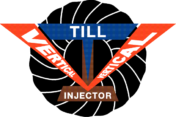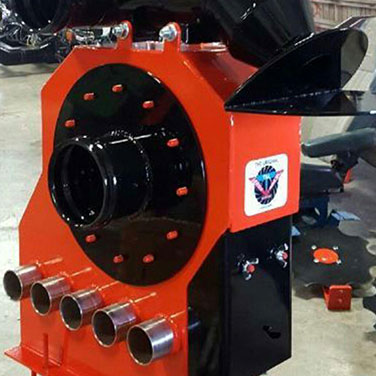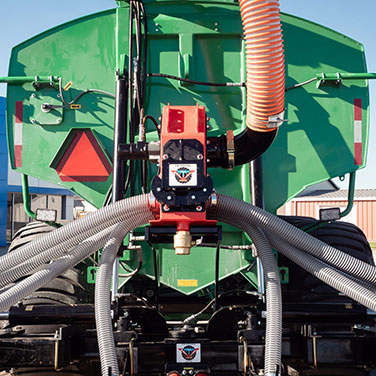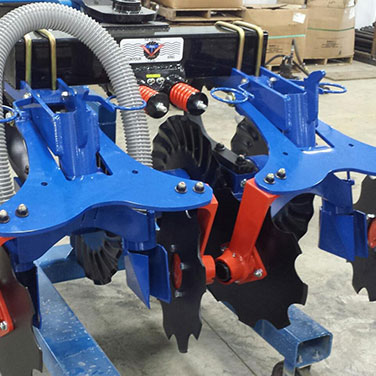Important Factors When Purchasing Manure Handling Equipment
Manure handling equipment is essential for any high-quality farm and helps your crops grow more strongly by producing higher-quality soil. As a result, you need to make sure that your equipment is as high-quality as possible by following these simple guidelines for selecting equipment. Doing so will ensure that you spend your money wisely and prevent expensive purchasing mistakes.
The five factors below are all critical to take into account when you’re buying high-quality equipment for your farm. Just as importantly, you should keep them in mind when buying any kind of equipment to ensure that your fertilizer is as high-quality as possible and that it doesn’t cause any complications with the rest of your farm’s operation.
How It Handles Manure Placement
All manure handling equipment is chosen and calibrated to place manure in pretty specific ways. The basic idea behind manure placement is to create an acceptable pattern that ensures that all of your crops get the best access to the nutrients from your manure. Typically, you want to keep the fertilizer on the ground as little as possible because it loses volatility when it sits too long on your plants.
As a result, you should try to find a system that uses a minimum amount of manure on your crops. Most equipment will have an adjustment system that lets you choose the flow of slurry, choking it off if the flow gets too fast. This benefit is critical because it can ensure that your equipment doesn’t run into any problems and keeps your crops safe and protected.
Injection equipment is probably the best choice for those who want to minimize runoff with their manure. However, this type of equipment is usually a little more expensive than those that lay fertilizer right on top of the soil. Make sure that you take your farm’s budget into consideration before you make any choice to ensure that you don’t spend too much on your equipment.
How It Conserves Nitrogen
Nitrogen is one of the most important elements of your manure because it helps to keep your crops healthy and provides potent nutrients. However, your soil is likely to leach a lot of nitrogen once your plants are pulled from the ground. And since nitrogen can be a damaging element if too much is added to your plants, you need to find manure handling equipment that knows how to conserve nitrogen use.
This aspect of your crop management is often quite tricky because your manure is likely to lose nitrogen at different rates based on the weather conditions. For example, warm and dry weather typically causes a greater loss because the nitrogen isn’t weighed down by water and is more likely to disappear from your manure. Wetter and cooler conditions ensure that your nitrogen sticks around longer.
Therefore, you need to make sure that your system takes into account this problem by utilizing different nitrogen application rates. Your manure handling equipment also needs to be adaptable to manure with a variety of different nitrogen levels. This helps to ensure that you get the most out of your equipment and keeps you from damaging your plants due to excessive nitrogen concentration.
Ways it Handles Odor Problems
Manure does not smell nice – though some may say that it smells like “money” in the way it helps their crops – and can be considered a nuisance if excessive smells end up floating to your nearby neighbors. As a result, any of your manure handling equipment, particularly those that use liquid, need to have a system that minimizes the odor to avoid these problems.
The easiest way to avoid this issue is to use solid manure because it is typically less potent in smell and easier to handle. However, liquid manure often provides your soil with the most nutrients, which makes it an important choice to consider. Injection equipment, as mentioned above, will put the manure directly into your soil and is a good choice for minimizing smells from your application.
You can also minimize odors based on how you use your manure equipment. For example, you may want to spread manure later in the day when the sun isn’t as intense. This helps to keep the excessive heat of the day from baking your manure and producing a potent stench. You may also want to spread it as quickly as possible to get it on the ground and to keep the smell from being too high for too long.
Ways It Manages Soil Compaction
Soil compaction is an important element to understand before you try utilizing any manure handling equipment on your farm. Simply put, your equipment will weigh down on the soil and cause compaction that may be adverse to your growing situation. For example, plant roots will have a harder time growing in compacted soil and may not grow as effectively as they did before you placed your equipment.
As a result, you need to find equipment that disperses its weight as evenly as possible across your soil. For example, tractor-based spreaders need to have multiple wheels and a wide wheel base to keep the wheels from sinking too far in the soil. Permanent spreaders should have many legs evenly distributed across the length of the spreader to keep them from sinking too far into the ground.
You may also want to consider systems that have lower weight levels and which can be moved more easily. For example, drag-hose spreaders require you to pull a hose throughout your fields and spread manure by hand or places them on the ground near your crops. These systems are less expensive but also less efficient and must be carefully considered before you make a purchasing decision.
Find Great Manure Equipment Today
So if you need manure handling equipment anywhere in the United States and Canada, please don’t hesitate to contact us at Vertical Till Injector (VTI) to learn more about your equipment options. We’ll work with you to ensure that you get the best machines for your farm that money can buy. In fact, we can even help replace and maintain your equipment if it runs into any operational problems.



